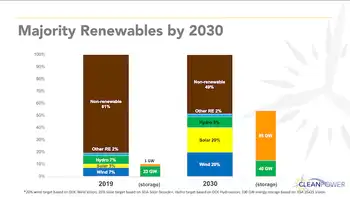Ontario Power Generation plays down 50 billion dollar lawsuit
By Globe and Mail
Substation Relay Protection Training
Our customized live online or in‑person group training can be delivered to your staff at your location.

- Live Online
- 12 hours Instructor-led
- Group Training Available
"We've always followed the regulations and the law of the land," OPG spokesman Dave Abbott said recently. "As the regulations change and evolve, which they do, OPG studies them and we try to learn in advance and get ready for compliance when they become law." OPG's coal-fired plants produce more than one-fifth of Ontario's energy supply, but Premier Dalton McGuinty's government hopes to close the sites by early 2009, assuming there is sufficient replacement capacity for electricity scheduled to go off line. One coal-fired plant closed in April, but the remaining four are still operating.
On behalf of "class members," three plaintiffs are claiming $49-billion in damages for negligence and $1-billion in punitive and exemplary damages from lead defendant OPG and 20 U.S. power companies. Class members are defined as "all individuals resident in Ontario at any time since the date six years immediately preceding the issue of this statement of claim" dated June 30.
Lawyers seeking class-action approval filed the lawsuit on behalf of three activists: Elizabeth May, the Ottawa-based executive director of environmental group Sierra Club of Canada; Hamilton public health consultant Kimberly Perrotta; and Christopher Robinson, a finance professor at York University.
They also allege that there will be $4-billion in annual damages in the future unless the electricity companies stop polluting and harming the health of Ontarians.
Mr. Abbott declined to comment on details in the case, saying provincially owned OPG hasn't been served yet in the lawsuit.
"We will study it, if and when it actually takes place," he said. "OPG is in full compliance with the current air emissions regulations, and that's what is important. The laws that are in place are the laws that we're following."
Two units of Houston-based Reliant Energy Inc. have been named in the lawsuit. Reliant also said it hasn't been served yet by the plaintiffs, but confirmed it is among the defendants accused of sending pollutants into the air that drifted into Ontario from U.S. coal-fired plants.
"We are confident that we have operated and continue to operate our coal-fired generation facilities in material compliance with all applicable federal and state environmental regulations," Reliant said in a filing to the U.S. Securities and Exchange Commission.
If the legal case becomes a class action, "all living parents, grandparents, children and grandchildren, siblings and spouses" of those who have died from breathing in pollutants could also have an estate claim, according to the lawsuit.
"The defendants owe a duty of care to the class members," the document said. "The defendants negligently failed or refused to eliminate or adequately reduce the emission of pollutants from the plants to prevent such harm from continuing."
Other U.S. firms named in the lawsuit include Detroit Edison Co., Ohio Power Co., Pennsylvania Power Co., Cleveland Electric Illuminating Co., Columbus Southern Power Co., Dayton Power & Light Co. and Cincinnati Gas & Electric Co.











